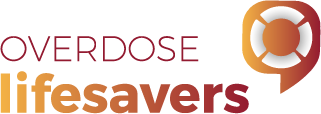
Mark spends the night looking after his friend Nathan
Preferred Name: Mark
Gender: Male
Age: Early 40s
Who is Mark?
Mark lives in an apartment in Melbourne. He describes his ethnic background as ‘Australian-Ukrainian’: he was born in Australia but one of his parents was born in Ukraine. Mark is divorced and lives alone but emphasises that he has had three ‘great loves’ in his life. Currently self-employed in his own small business, he also receives a Commonwealth Newstart allowance*. Mark consumes drugs recreationally but also to manage pain stemming from a hip injury. He didn’t know much about take-home naloxone at the time of the interview, but likes ‘the idea of it’ overall.
Brief Outline:
Mark describes a night he spent at a party looking after his friend Nathan, who he was worried was overdosing. Mark and Nathan had been drinking together during the course of an evening and went back to a friend’s apartment to finish off with a ‘bit of a house party’. During the evening Mark noticed Nathan had ‘keeled over’ in the corner of the room. Mark woke him up, and Nathan said he wanted privacy so Mark took him into a stairwell. Although Mark thought this was an overdose, he didn’t call an ambulance because Nathan said his dad would ‘kill him’ if he found out he’d been consuming drugs. Mark ‘didn’t exactly know what to do’, so he looked after Nathan by waking him up throughout the night. Even though Mark and Nathan were ‘best mates’, they didn’t talk about this event for ‘many years’.
I looked at him and thought there was something really wrong. He said, ‘Just get me away from these people. I don’t want anyone to see me.’ So I pulled him into the stairwell and said, ‘Nathan, what’s going on?’
I’d already had a feeling that Nathan had picked up a heroin habit so I pulled up his sleeve and I could tell he’d injected heroin that night. He was nodding off and had his head in his hands, so I thought he was having a mild overdose. I wasn’t very knowledgeable about such things, so I didn’t exactly know what to do. I couldn’t find out more information as there certainly weren’t any phones with internet or anything back then.
I considered calling an ambulance, but Nathan said, ‘Don’t, because if my dad finds out, he’ll kill me.’ Instead I just sort of stayed with him. I stayed with him the entire night, and just kept nudging him and telling him to wake him up whenever he seemed to be sleeping too much. I kept checking his pulse, which seemed slow to me, but by about 7:30 in the morning he was slowing improving. We pretty much sat on cold concrete all night, and eventually he was awake enough for us to get out of there.
Recounting the event in the interview, Mark realised that he and Nathan didn’t speak about it for ‘many years’, which he felt was ‘weird’ as they were ‘best mates’.
Mark (M, early 40s, Vic, non-prescribed opioids) describes in detail helping his friend who had overdosed at a party. (Note: strong language)
Because, basically, I can remember … he was my best friend at the time, and this is many years ago, and I had a feeling that he’d picked up a heroin habit. We were drinking at similar levels, we both generally weren’t huge drinkers, and we’d always drink beer and be at a place and be happy enough and, you know, we wouldn’t drink to oblivion. And then, all of a sudden, when we got back to this person’s house, we were, like, finishing off a bit of a house party, and gone back to this other person’s flat – and, just suddenly, I just saw him keeled over in the corner of the lounge room and I was, like, ‘What the fuck is going on?’ And I just sort of looked at him and thought ‘shit’, and I just pulled him into the stairwell, because he said, ‘Just get me away from these [other] people. I don’t want anyone to see me.’ [I just said … ‘What’s going on?’]
And I just pulled up his sleeve and it was like, ‘Aaaah, okay’. I just stayed with him all night, just kept trying to talk to him, because I was fairly young then, I was probably only 24, and I call that young in my drug-taking days. So I didn’t exactly know what to do. There certainly wasn’t any phones with internet [on them or anything like that] back then, and so if I thought he was sleeping too much, I would just nudge him and say ‘wake up’. He was nodding off, and he had his head in his hands, and stuff like that. I considered calling the ambulance, and I remember at one point he said, ‘Don’t, because if my dad finds out he’ll kill me’. His dad was a cop, so I thought, ‘Well fuck, all right’, because you don’t know how much of the systems were all linked, or whatever – it doesn’t matter. So yeah, I just sort of stayed with him. That was my most personal experience.
Mark (M, early 40s, Vic, non-prescribed opioids) reports a time when his friend overdosed at a party. While he wasn’t sure exactly what to do at the time, he describes sitting with his friend nudging him awake whenever he fell asleep. (Note: strong language)
And I just sort of looked at him and thought ‘shit’, and I just pulled him into the stairwell, because he said, ‘Just get me away from these [other] people. I don’t want anyone to see me.’ I just said […] ‘What’s going on?’ And I pulled up his sleeve and it was like, ‘Aaaah, okay’. I just stayed with him all night, just kept trying to talk to him, because I was fairly young then, I was probably only 24, and I call that young in my drug-taking days. So I didn’t exactly know what to do. There certainly wasn’t any phones with internet on them or anything like that back then, and so if I thought he was sleeping too much, I would just nudge him and say ‘wake up’. He was nodding off, and he had his head in his hands, and stuff like that.
Although Mark (M, early 40s, Vic, non-prescribed opioids) didn’t know much about take-home naloxone before his interview, he thought it was a good way of looking after others.
I just like the idea that there could be something out there that lay people could buy, have it wherever it needs to be stored, and hopefully it lasts for a good time, and then that way, we can look after each other […] I like the idea, you know, that even in an area like [in the Melbourne CBD], where there’s a hell of a lot of drug use, you know that someone might be able to rush in [and help]. A bit like those […] defibrillators. Yeah, I know certain beaches or train stations or whatever [have them]. I like the idea that in certain areas there’s an emergency defibrillator and […] anyone can use it. It’s a first response thing, you know, and I like that.

